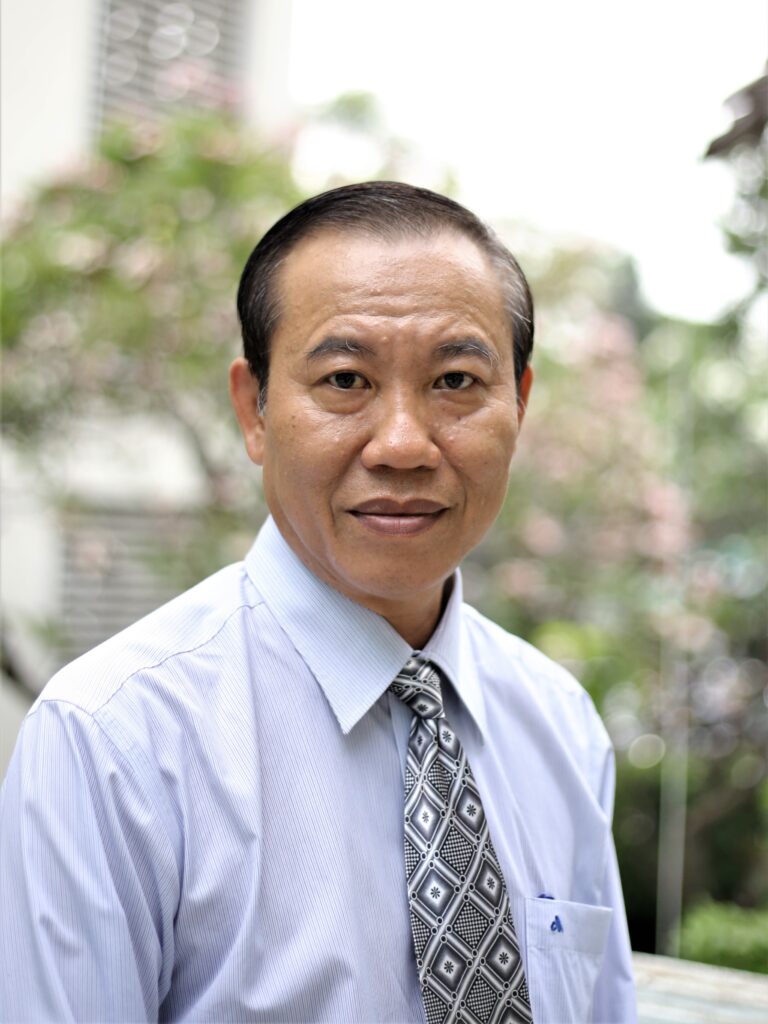« Research4Life was the main reference for reliable information »
This interview was conducted by An Hạ, CEO of Amazing Group
Doctor Le Thanh Ni supervises the Library at Cho Ray Hospital, the largest general hospital in Hồ Chí Minh, Vietnam. He is also Head of the Clinical Department where he provides training for a wide range of clinical skills – from using needles to giving first aid, to using machines that can simulate illnesses for doctors to practice with. We talked to him about his career and how Research4Life supports his work.
What is your experience with Research4Life?
I have worked at the hospital since 1991, when I looked after patients affected by malaria: at the time, the hospital was investing a lot of resources to support interventions, including setting up training with foreign experts. In 1998, my tendency to always ask questions landed me a new assignment: setting up an Information Technology Centre. When work started to set up a system to manage the hospital, there was no internet or IT team. More than twenty years later, the Centre is now the main supporting team for the Hospital Director, and they’re in charge of deploying new plans and managing patients and staff.
When the internet arrived in Vietnam, at the Centre we started to look for digital libraries, and found Hinari – which went on to become one of the collections in Research4Life. At that time in Vietnam, books, journals and magazines were limited. Now information is flooding the internet, but it certainly wasn’t at that time. So Hinari proved very useful, and I introduced it to the doctors in the hospital through weekly “Science Discussions”, which are sessions where we could report interesting cases, reports or news, and I used that time to introduce Hinari.
I remember people being so excited to have a digital library to access information completely for free! Doctors could now read updates and news, or research information and medical treatments that would be useful for new research: Research4Life was the main reference to search for reliable information.
What is your biggest challenge with using Research4Life?
The language barrier is quite challenging. Though many doctors know English, sometimes we can’t quite understand all the information: and with a huge amount of the material being in English, at times we don’t know if we are looking up research correctly, and as a result the system returns poor content.
What would you like to see in Research4Life in the future?

I have seen Research4Life publish a new “how to publish an article in international journals” news recently – and the email was in Vietnamese. If Research4Life is going to develop a multilingual approach and support the local researchers reaching to international journals, that would be really wonderful. Writing and publishing an article in international journals is challenging to Vietnamese researchers, as there are plenty of requirements which are hard to meet without support, and our writing might not be adequate.
Another thing I’d like to see is for Research4Life to get closer to the doctors: sometimes the information in Research4Life is updated more slowly than in other resources, which means that the platform is used less, and doctors start to look at other databases.
What would you say to someone who is unsure about or yet to use Research4Life?
The database is quite comprehensive, and offers plenty of information in diverse fields from different resources – and that will be really useful for anyone doing research.
For new users who are unsure about using Research4Life in the hospital, I’d suggest starting to introduce it to new staff right away: many will find information beneficial for their work, especially doctors who have just started a new research project.
Discover Research4Life
Research4Life provides institutions in lower income countries with online access to academic and professional peer-reviewed content. Find out how to get access.
Already a user? Discover our Training Center, and find free resources to make the best use of Research4Life and improve your research skills.






